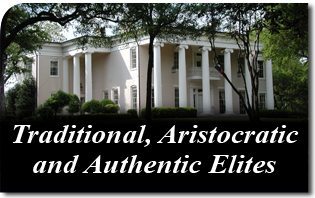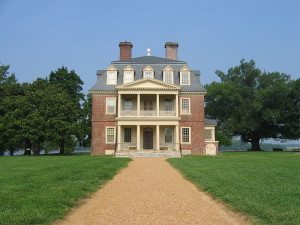 Qualifiers such as professional, cultural, moral, ethnic and so forth usually accompany the word elite. For this reason, it is useful to describe the meaning of three frequent qualifiers for the word: traditional, aristocratic and authentic.
Qualifiers such as professional, cultural, moral, ethnic and so forth usually accompany the word elite. For this reason, it is useful to describe the meaning of three frequent qualifiers for the word: traditional, aristocratic and authentic.
A professional elite can be traditional without being aristocratic.
For example, it can be made up of the best fishermen who have practiced their profession along the New England coast for many generations.

An aristocratic elite is composed of members who exercise an activity compatible with the aristocratic condition. It also must be rooted in tradition, that is, to have existed for a period of time adequate to confer upon it a traditional character.
The authenticity of an elite, both traditional and aristocratic, comes from the excellence of its activities and lifestyle. It also arises from the fact that its members are truly what they claim to be. An elite of costume jewelry makers, however qualified and old, is not authentic if its members define themselves as fine jewelers.
* * *
Plinio Corrêa de Oliveira, Nobility and Analogous Traditional Elites in the Allocutions of Pius XII: A Theme Illuminating American Social History (York, Penn.: The American Society for the Defense of Tradition, Family, and Property, 1993), American Appendix, p. 185.

Editorial Comment
The word “elites” is bantered around irresponsibly today in a way that vilifies and condemns any and all leadership in society. This can only favor those who want an anarchical society, one without government or leadership of any kind, and where any semblance of culture and civilization has been stripped from society and men have become brutes and savages.
Rejecting this subversive tendency, Prof. Plinio Corrêa de Oliveira upholds and defends the need for elites in society.
They should be stimulated, not repressed or persecuted. They should understand and love their leadership role and be helped in its pursuit. Exactly because elites should exist in every class, they are not all the same.
In this excerpt, Prof. Corrêa de Oliveira explains how all elites must (1) be authentic and in the pursuit of excellence; and (2) be genuine. He also explains that when such authentic elites have maintained this elite status for some generations, they become traditional elites. When traditional elites live in an aristocratic manner, they become an aristocratic elite that is analogous to the established European nobility of old.

